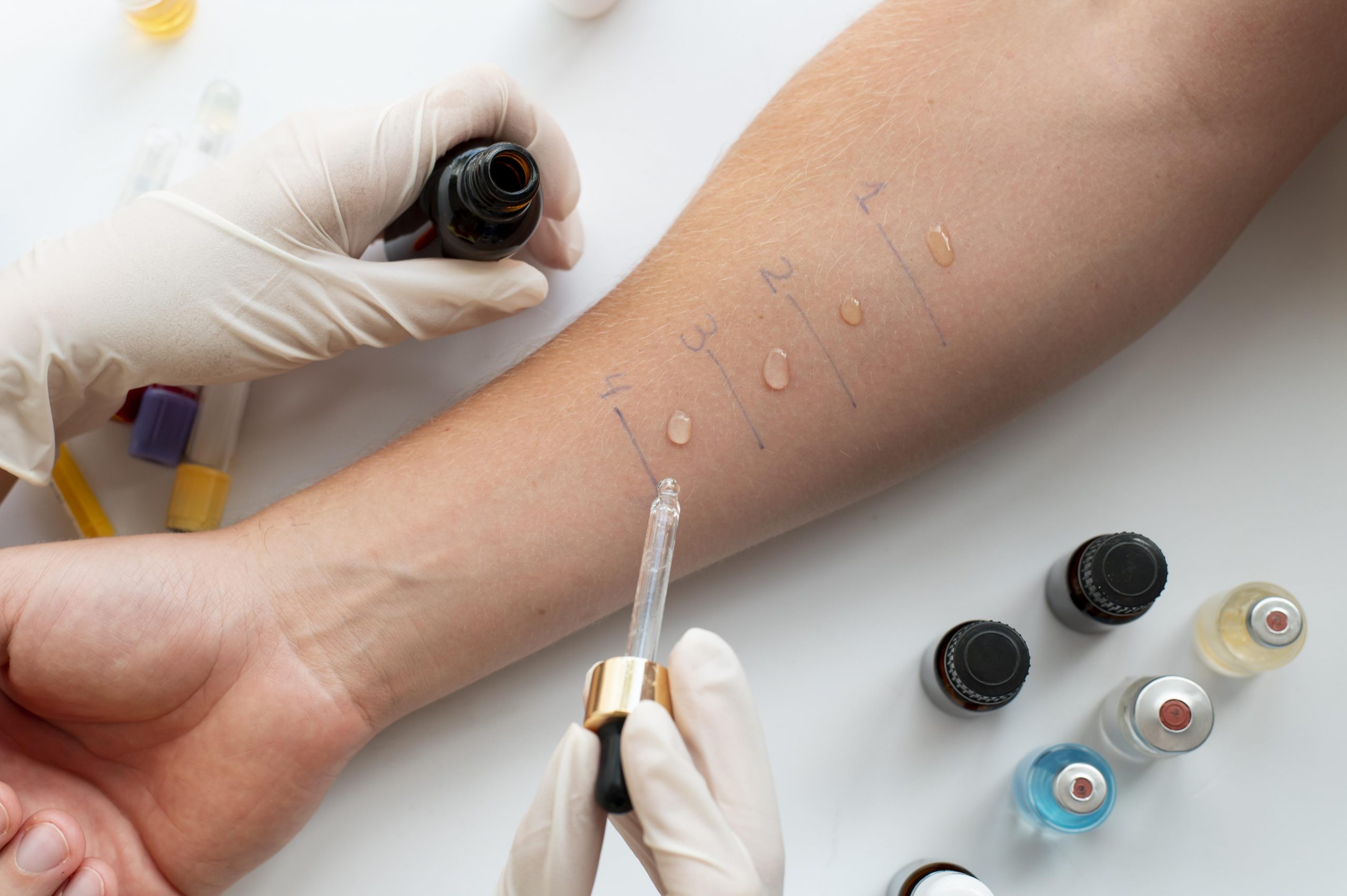Allergy testing is a process where you go through a series of skin prick tests or blood tests to find out which allergens, if any, are causing your allergic reactions. The idea behind having an allergy test in Singapore, for example, is that once you know what you’re allergic to, you can take steps to avoid them and hopefully lessen your number and severity of allergic reactions.
However, the thing about allergies is that they vary from person to person. What might cause an allergy in one person may not cause an allergy in another. And even within the same person, allergies can change over time. So while allergy testing can be a helpful tool for identifying allergens, it’s not always 100% accurate.
What are the Different Types of Allergy Tests?
When it comes to having an allergy test in Singapore, there are two main types that your doctor may recommend: skin prick tests and blood tests. Skin prick tests involve placing a small amount of potential allergens onto the skin, then pricking the skin with a needle.
If you’re allergic to an allergen, you’ll develop a small bump or welt on the skin. This test is used to detect IgE antibodies, which are associated with most allergies.
Blood tests are used to measure the concentration of IgG and IgA antibodies in the blood. These antibodies are usually produced in response to food allergens, but they can also be produced in response to environmental allergens like pet dander or dust mites. Blood tests can’t identify specific allergens, but they can provide helpful information about how your body reacts to certain allergens over time.
The other tests that may also be used to check for allergies include; patch tests, elimination diet, challenge testing, and use of allergy test kits. Real quick, here is a summary of what each option involves;
- Patch tests: A small amount of potential allergens are applied to patches, which are then placed on the skin. The patches are left in place for a few days, and then checked for any allergic reactions.
- Elimination diet: A person eliminates certain foods from their diet, and then slowly reintroduces them to see if any of them cause an allergic reaction.
- Challenge testing: A person is given a small amount of a potential allergen and then monitored for a reaction. If they don’t have a reaction, they’re gradually given more of the allergen until they do have a reaction.
- Allergy test kits: These allow people to test themselves for allergies by exposing them to small amounts of potential allergens.
How do you prepare for Allergy Testing?
To get the most accurate results from an allergy test, it’s helpful to avoid antihistamines and other medications that can suppress your immune system for a few weeks beforehand. If you’re not sure when you last took any antihistamines, check with your doctor before scheduling an appointment for allergy testing.
Likewise, if there’s anything in your diet or lifestyle that might be causing your allergic reactions (like eating foods containing ingredients that were produced using certain pesticides), try to avoid them as well. You should also make sure the people administering the skin prick tests know whether you’ve had previous reactions to skin prick tests. Some people can develop severe reactions, like anaphylaxis, after being exposed to even a small amount of an allergen.
What Happens During Allergy Testing?
If you’re getting skin prick tests, the allergens will be applied to your skin using a series of small needles. The needles are then pricked into your skin, which can cause a slight prickling sensation. You may also see some redness or swelling around the area where the allergens were applied.
Blood tests are usually done by drawing blood from a vein in your arm. After the blood is drawn, it will be sent to a lab for analysis. Both types of tests usually take about 20-30 minutes to complete.
What do the Results of Allergy Testing Mean?
The results of an allergy test can help your doctor determine which allergens are causing your allergic reactions. This information can then be used to create a treatment plan that helps you manage your allergies.
If you’re allergic to a particular allergen, the good news is that there are treatments available that can help you manage your allergy symptoms. These treatments may include medications, allergy shots, or dietary changes.
Your doctor may also advise against getting in contact with the allergen as much as possible. This can be difficult if the allergen is something like pet dander or dust mites, but there are things you can do to reduce your exposure to them. For example, you can keep pets out of the bedroom and use a vacuum cleaner with a high-efficiency particulate air (HEPA) filter to remove dust and dander from your home.
If you’re not sure what your allergy triggers are, your doctor may recommend doing an elimination diet. This involves eliminating certain foods from your diet, then slowly reintroducing them to see if any of them cause an allergic reaction.
What Else Should I Know about Allergy Testing?
Although having an allergy test in Singapore can help you figure out what’s triggering your allergies, it’s not a foolproof system. For example, in the case of pollen and other outdoor allergens, there is usually little you can do to avoid contact with them when they’re in season.
Allergy medications work well for indoor allergens like dust mites and mold but aren’t as helpful against things like pollen or animal dander that you’re likely to come into contact with outdoors. If you want to know exactly what kind of allergen triggered a particular reaction, it may be necessary to have an allergy specialist perform specialized tests for certain allergens or do additional testing of your blood samples.
Final Thoughts
Allergy testing can be a helpful tool in helping you figure out what’s triggering your allergic reactions and how to best manage them. If you’re interested in getting an allergy test in Singapore, talk with your doctor about the different methods available and which may be right for you. You may also give us a call at: +65 8886 7890 or email at: [email protected] to discuss your allergy testing and treatment options that may work best for you.
Dr Ben Medical @ Raffles Place : Ear Wax Removal | Allergy Testing | Erectile Dysfunction
1 Raffles Pl, #04-50, Singapore 048616
+65 8886 7890
https://www.drbenmedical.sg/
 Car Service Rockingham: Comprehensive Solutions for Your Vehicle’s Needs
Car Service Rockingham: Comprehensive Solutions for Your Vehicle’s Needs  Kindness and Quiet Help Everyone Enjoy the Office Entertainment Site Together
Kindness and Quiet Help Everyone Enjoy the Office Entertainment Site Together  Machine Learning with Excel: A Beginner’s Guide
Machine Learning with Excel: A Beginner’s Guide  Transforming Singapore’s Transport System The Ultimate Convenience of Promenade Peak
Transforming Singapore’s Transport System The Ultimate Convenience of Promenade Peak  Using CAGR Calculator for Business Revenue Forecasts
Using CAGR Calculator for Business Revenue Forecasts  Chencharu Close Condo Mix Development The Ultimate Address for Modern City Living with Exceptional Transport Links and Future-Ready Amenities
Chencharu Close Condo Mix Development The Ultimate Address for Modern City Living with Exceptional Transport Links and Future-Ready Amenities  How to Prevent Aches and Pains from Everyday Activities
How to Prevent Aches and Pains from Everyday Activities  Expanding Horizons Enrichment Centers and Special Education Institutions Near The Sen Condo
Expanding Horizons Enrichment Centers and Special Education Institutions Near The Sen Condo  How Commercial Cleaning Enhances the Environment in Toledo’s Dental Labs
How Commercial Cleaning Enhances the Environment in Toledo’s Dental Labs 




